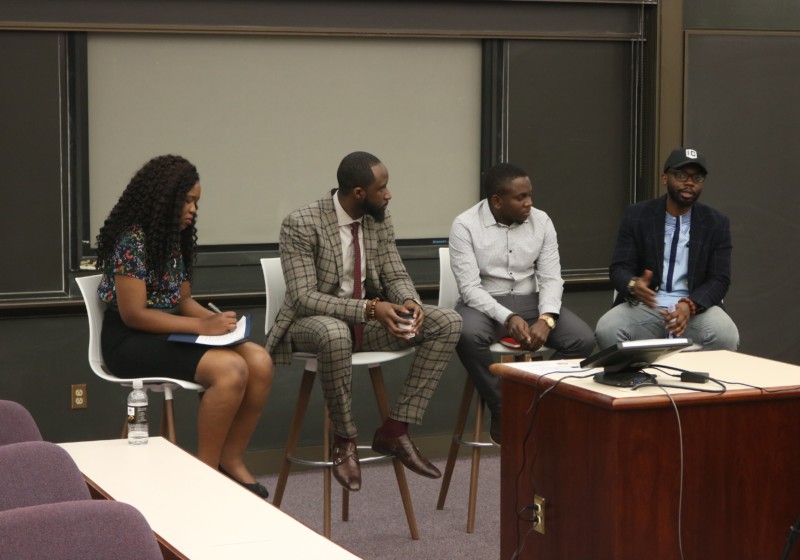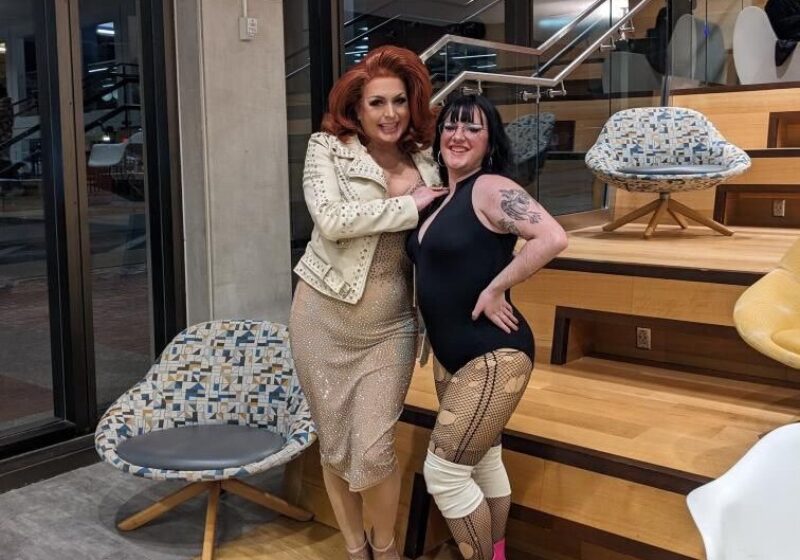The first-ever Rochester African Business Conference mixed financial advice and heritage celebration this past Saturday at the UR Simon Business School.
At times provocative and at others encouraging, speakers used the conference as an opportunity to share wisdom and advice with fellow aspiring African changemakers.
The event’s opening keynote speaker was Chike Ukaegbu, founder of New York-based agency StartUp 52. He began with a warning that Africans were on course to become “the dinosaurs of the human race.” He told of his experience with the “‘White is Better’ phenomenon,” illustrated by the dying-out of African languages.
Ukaegbu also touched upon the existence of schools in Nigeria where kids are given the option to be taught to speak English with a British accent to sound “smart.”
To fix this, he said, the African community needs more unique people he called “outliers,” who are prepared to embrace their heritage and create new spaces for it, as opposed to “forcing [themselves] into boxes created by others.”
Like the rest of the speakers, Ukaegbu encouraged interaction, jokingly threatening to fall asleep at the podium if not engaged in conversation. Even at mealtimes, the speakers were found sitting alongside the attendees and answering questions, or telling stories about where they grew up.
Another speaker, Godfrey Magila, offered a new perspective on resilience by sharing his story on becoming the CEO of Magilatech, a software development and security auditing company in Dar es Salaam, Tanzania, despite losing both his parents and his adoptive family before he was in his late teens.
Strategic advisor Terry Oppong, who has worked with TED Conferences and TIDAL, stressed the point of treating everyone you meet with respect, as you never know where opportunities might come from.
Providing a perspective of entrepreneurship and women empowerment on the African continent was Jennifer Kyker, a professor at the University who in 2003 founded Tariro, a non-profit organization that pays school fees and related expenses for orphaned and vulnerable teenaged girls in Zimbabwean communities affected by HIV/AIDS.
Sophomore Dewey Bazirake, who helped organize the event, said he was particularly pleased with the quality of speakers in the conference in comparison to other conferences he had attended.
“These were people you can relate to, people who are hustling,” Bazirake said.
Other students were grateful for the advice the talks given during the event’s talks.
“What was really inspiring was how they all had a call to action, concrete steps that you could take,” Simon Business student Jaime Staengel said.
Sophomore Jay Sheriff from Sierra Leone, who co-founded an organization to involve youth in the global efforts to improve climate conditions, found the conference educative and important.
“It keeps me motivated on the work I’m doing, even though right now it’s so hard,” Sheriff said.
Another issue stressed at the conference was the importance of monetizing your passions to avoid becoming a “hopeless humanitarian,” a term introduced during one presentation.
Ghanaian-American author Kofi Genfi, who began his closing keynote speech with a self-written poem, spoke of monetizing your passions, financial literacy, and his own financial journey.
He told a story about losing $25,000, a sum of money he had saved throughout his college years.
“I went to the casino one night — I lost $13,000 in one night,” Genfi told the crowd. “I went back to try to win it back, and lost $12,000.”
The setback did not crush him but instead inspired him, and it is the inspiration for his hat fashion line, with its tagline, “I Came Up God Came Through” with a strikeout through “I Came Up.”
Looking forward, the organizing team aspires to have more female speakers at the conference and to bring in additional companies, a move that could help students attain internships.






